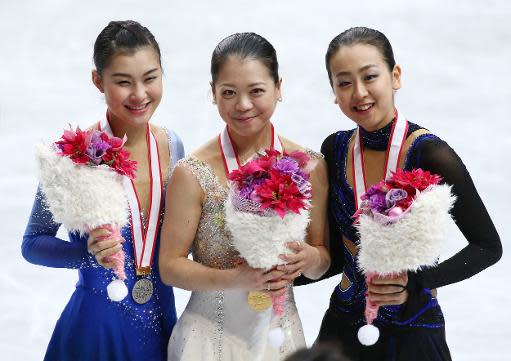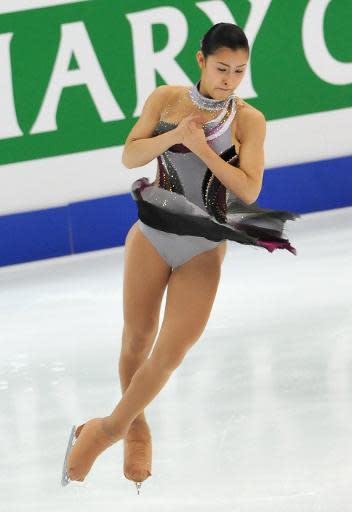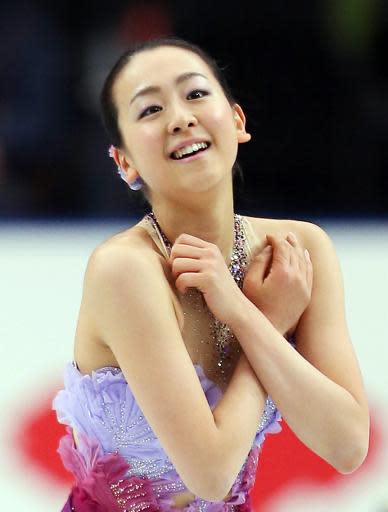'Scary moms' powering Japanese figure skating
Scary moms are the reason behind Japan's figure skating success, according to Olympic newcomer Kanako Murakami. Japan's three women figure skaters at the Olympics -- Mao Asada, Akiko Suzuki and Murakami -- all come from Nagoya, in the Aichi Prefecture. Asked how come the region, which also produced the country's first Olympic medallist Midori Ito, has had such success, 19-year-old Murakami had no hesitation. "The mothers in Aichi are very enthusiastic," she said. "Some of them are very scary actually. It's not just the coaches who crack the whip but those mothers." Ito, the 1992 Olympic silver medallist, was also from Nagoya, although Sochi men's winner Yuzuru Hanyu and former women's champion Shizuka Arakawa grew up in northern Sendai. "We (Ito) have the same coach. I've heard a lot about her. She's my idol and the person I respect the most," said Murakami. "Akiko and Mao are the athletes I respect the most here," she added. "They are like my big sisters. I feel very relieved and happy to be here with them. My coach told me to enjoy my first Olympics and that's what I'm doing." It is the second Olympics for both Asada, 23, who finished runner-up to South Korea's Kim Yu-Na in Vancouver in 2010, and Suzuki, the oldest woman competing at 28 years. She finished eighth in Vancouver. "There are some scary mothers," agreed Suzuki, "but because of that kind of support all of those people create a positive atmosphere so that we can practice." Asada added that there was a real skating culture in Nagoya. "When I was a child there were so many people skating, so many I admired and who I was able to skate with. The experience I had as a child is the reason I'm here today." The Japanese women returned to Sochi after travelling to Armenia to practice calmly after the team event, which finished over a week ago, with the women's competition starting on Wednesday. - I was upset and unsure of myself - "After the team event, I was a little upset and unsure of myself," said Asada, a former two-time world champion. "I wasn't exactly on a high during the training in Armenia, but I've felt pretty good the last couple of days since coming back to Sochi." Japan finished fifth in the team event in which Asada finished third in the short and Suzuki fourth in the long programme. Asada, who became the first woman to land the triple Axel three times at one event in Vancouver, said she was not planning to attempt three in Sochi. "I'll do it in the short programme once and in the free programme once that's what I've decided," said the Grand Prix winner. "If I include two triple axels in my programme it could be boring, for this reason I think it's better to include other triple-triple combinations." If she does the triple axel at the Iceberg Skating Palace on Wednesday and Thursday she will become the first female skater to complete it at back-to-back Olympics. Suzuki, meanwhile, said she was just happy to be back at an Olympics after an erratic four years, with a world bronze in 2012 followed by 12th place last year. "I had to overcome a lot to get here," she said. "Maybe I've matured. This is going to be my last Olympics. I don't want to leave with any regrets. I want to leave with a smile." Japanese women's figure skaters Kanako Murakami, Akiko Suzuki and Mao Asada pose for photos in Saitama, suburban Tokyo on December 23, 2013 Kanako Murakami of Japan performs during the Four Continents Figure Skating Championships in Taipei on January 23, 2014 Japanese figure skater Mao Asada performs at the national championships in Saitama, suburban Tokyo on December 22, 2013


